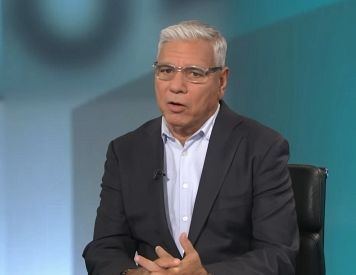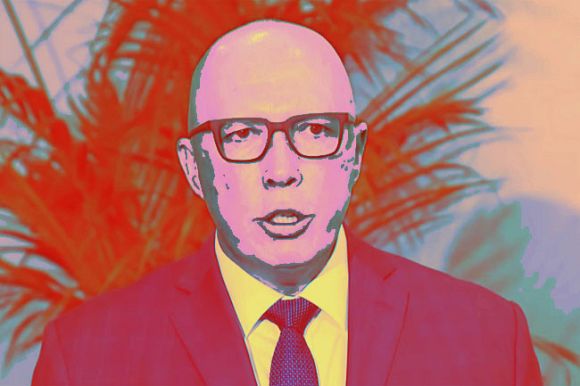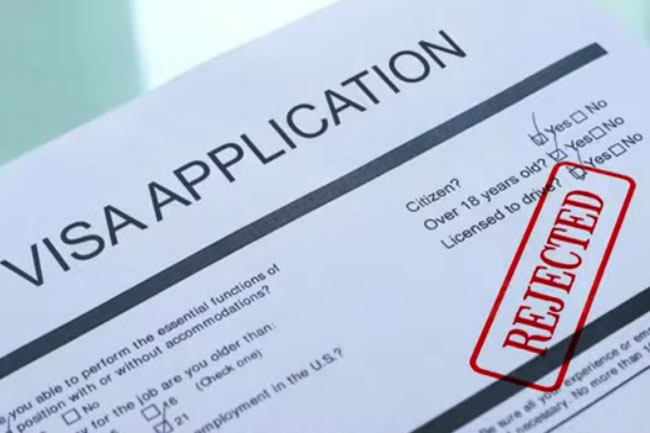Before voting in the upcoming Referendum, it's vital to be educated on arguments from both sides to make an informed decision, writes Dr Abul Rizvi.
*Also listen to the audio version of this article on Spotify HERE.
WITH THE DATE of the Voice Referendum now having been set for 14 October, all households will have received a pamphlet outlining the ‘Yes’ and ‘No’ cases. Australians should understand that these pamphlets have not been officially fact-checked. An attempt at fact-checking the two cases by The Guardian is worth reading, but I found that insufficient.
In terms of public polling, it appears the ‘No’ side is well ahead with its very effective if somewhat insulting slogan of ‘If you don’t know, vote no’. As if Australians are too lazy to find out.
On the basis of that slogan, it would be hard to imagine any referendum ever again being successful. It’s one reason why the record of referendums in Australia is appallingly bad. Since World War II, no referendum has been successful when it didn’t have the support of both the Labor Party and the Liberal Party.
While the Liberal Party has opposed every referendum since 1977, it was not always so negative. One of the most decent prime ministers we have ever had, Liberal Party Leader Harold Holt, led both the demise of the White Australia policy and the success of the 1967 Referendum to count Indigenous Australians within the Australian population and enable the Commonwealth to implement laws and programs in respect of Indigenous Australians.
The 1967 Referendum was the most successful in our history with over 90 per cent support.
Sadly, we no longer have leaders like Harold Holt in the modern Liberal Party. Someone like him would be either booted out or silenced very quickly by today’s Liberal Party.
Today, of course, we have the added weight of the Murdoch empire prosecuting the ‘No’ case. The Murdoch empire would ensure someone like Holt and his fundamentally decent approach to issues of race has no opportunity to progress in the modern Liberal Party.
How did I decide how to vote?
Unimpressed by the insult of the ‘If you don’t know, vote no’ slogan, I decided I would do my own research on how I should vote.
I relied on three approaches. Firstly, I considered how the existence of the Voice might have improved or hurt policies for Indigenous Australians if it had existed in the last 20 years. Secondly, I looked at which prominent Australians support the Voice, which oppose and why. Finally, I looked at what Australia’s leading Constitutional law experts are saying.
I left to one side issues about dispossession, past mistreatment of Indigenous Australians and Australia’s reputation around the world for our appalling treatment of Indigenous Australians. While each of these is important, I did not consider them crucial to the consideration of whether the Voice will be good or bad for Australia.
So what would have happened if the Voice had been in place for the last 20 years of abject failure of policy on Indigenous Australians? Because that is one way of considering the potential impact the Voice may have in future.
For example, would advice from the Voice have been beneficial to the development and implementation of policies on closing the gap? Would government have benefited from advice from the Voice on John Howard’s infamous “intervention” in the NT or his lengthy delay in saying sorry to the stolen generations? Would the Government have benefited from advice from the Voice on its decision in 2013-14 to cut over $500 million from Indigenous programs? Would the Government have benefitted from advice from the Voice on the design of the welfare card (or indeed on the impact of Robodebt on Indigenous Australians)?
It is hard to imagine how advice from the Voice could have made the design and implementation of these policies any worse. There is every chance it would have made them so much better.
On the other hand, how might have the Voice had a negative impact? For example, would the Voice have put additional pressure on governments to go down the path of a national treaty (as opposed to the state-level treaties currently being developed)? Senator Lidia Thorpe argues the Voice will kill off any chance of a national treaty while Senator Pauline Hanson argues the Voice is a stalking horse for a national treaty. The Voice could certainly argue for a national treaty but that would still require Parliament to agree to that (and possibly a further Constitutional amendment).
And who is to say a national treaty, a negotiated settlement with Indigenous Australians on issues such as dispossession, would have been a bad thing? The Treaty of Waitangi in New Zealand has certainly helped that country make better progress on reconciliation with its Maori people.
I concluded that the fearmongering by Pauline Hanson on a national treaty is exactly that — standard Hanson fearmongering.
I discounted the silly suggestion that the Voice would try to provide advice on unrelated matters such as interest rate policy. The idea that a group of Indigenous representatives would have the time or the inclination to pull together advice on unrelated matters is laughable to anyone who has ever been involved in any committee to advise on anything.
I also dismissed the suggestion from Opposition Leader Peter Dutton that we should not vote on the Referendum until we have seen all the details of the subsequent legislation implementing the Voice. He knows that is putting the cart before the horse.
We did not have detailed legislation on how the Commonwealth would develop Indigenous policies before the 1967 Referendum, yet over 90 per cent of Australians voted for it. Australians in 1967 understood that not counting Indigenous Australians in the Census and not having national policies regarding Indigenous Australians was just appalling. Voting ‘Yes’ was simply the decent thing to do even if there were no legislative details available.
Legislation implementing the Voice will eventually be debated in Parliament which will decide the details, just like we rely on Parliament to debate all sorts of legislative detail. If the details turn out to not work, Parliament will debate changing those details. The proposed Constitutional change explicitly provides for Parliament to do that.
The call for details is a classic distraction strategy Dutton would have learned from John Howard. It is part of the ‘Don’t know; vote no’ slogan.
There is no question in my mind that if the Voice had existed in the past 20 years, we would be in a much better place in terms of the reconciliation agenda and the effectiveness of policies to close the gap.
Peter Dutton has proposed that if he becomes prime minister, he will introduce legislation to create a Voice and will propose another referendum to recognise Indigenous Australians in the Constitution. But if that is his view, why didn’t he prosecute this during the many years he was a Cabinet Minister?
There are, of course, many legislatively based government advisory bodies that provide advice on a whole range of issues. These are regularly created and abolished, especially when the Government doesn’t like the advice they give. Does Dutton fear a Constitutionally backed Voice that cannot be abolished and would be truly independent of government and not beholden to it? One that would be fully committed to providing honest advice to genuinely improve policies for Indigenous Australians.
The second approach I took was to draw up a list of the most prominent supporters and opponents of the Voice (excluding all current Labor Party politicians as they have proposed the Referendum).
Prominent supporters include former Senior Australian of the Year Tom Calma, one of the most decent and knowledgeable people on Indigenous policy that I know. Other prominent Indigenous leaders supporting the Voice include Pat Turner, Noel Pearson, Pat Anderson and Nareen Young.
The list I drew up showed the bulk of prominent opponents to the Voice have a long history of pursuing “dog whistle” politics. But not all conservatives oppose the Voice.
There are many Liberal Party members who support the Voice such as former Shadow Indigenous spokesperson Julian Leeser, current Tasmanian rebel Liberal Party member Bridget Archer, former Indigenous Affairs Ministers Ken Wyatt and Fred Chaney, former Foreign Affairs Minister Julie Bishop and former Prime Minister Malcolm Turnbull. Note these are all moderates who would generally eschew “dog whistle” politics.
A range of State Liberal leaders (once again mostly moderates), unions, business groups, sports associations and Indigenous sportspeople such as Cathy Freeman, Adam Goodes, Michael Long, Jonathan Thurston and Patty Mills are also strong supporters.
Amongst other current politicians supporting the ‘Yes’ campaign are the Greens, the full range of Teal Independents, the Jacqui Lambie network and Senator David Pocock.
The most prominent Indigenous opponents are NT Liberal politician Jacinta Price as well as former Labor and now Liberal Party member Warren Mundine. Senator Lidia Thorpe is also an opponent but for very different reasons.
Other prominent opponents include former Prime Ministers John Howard and Tony Abbott. Tony Abbott’s former chief of staff, Peta Credlin, is also prominent in the ‘No’ group as well as United Australia Party Senator Ralph Babet. Most but not all of the presenters on Sky After Dark such as Andrew Bolt, Paul Murray, Alan Jones and most of the Murdoch press (Chris Kenny is a notable exception) also oppose the Voice.
We should not forget Bolt and Jones have both been found to have breached anti-discrimination legislation. Jones is, of course, infamous for his role in the Cronulla Riot while Bolt has long been obsessed with the skin colour of various Indigenous Australians (as if that is somehow important).
Not surprisingly, one of the first to come out in opposition to the Voice was Pauline Hanson and her One Nation Party. Ever since her maiden speech, Hanson has been a lightning rod for anyone who resents any policy that helps Indigenous Australians.
She was quickly followed by National Party leader David Littleproud — he would have been keen not to lose his more bigoted and “what about me” supporters to One Nation, particularly in Queensland where dog whistle politics is crucial. But there are also National Party members who do not agree with their leader (for example, Andrew Gee).
While he took some time, Peter Dutton is now firmly in the ‘No’ camp. That was after admitting, unconvincingly and in a desperate attempt to soften his image given his appalling history on issues of race, that he was wrong to walk out on the apology to the Stolen Generation. If anyone believes Dutton is truly sorry for that, I have a harbour bridge I could sell them.
Apart from the two Indigenous Liberal Party members, what does the ‘No’ group have in common? Their most common trait is that they have in the past successfully used dog whistle politics to their advantage and do endless damage to the cause of reconciliation (and multiculturalism). Having made careers out of stoking division, it’s ironic this same group is calling the Voice “divisive”.
Why Jacinta Price and Warren Mundine want to associate themselves with this dog whistle group is a mystery. The reasons they have given for opposing the Voice is essentially that it cannot represent the views of Indigenous Australians in regional and remote Australia. But that is a matter of how representation on the Voice is designed — it has nothing to do with the fundamental concept. It is hard not to think their position is more about self-interest (a position in Cabinet or a Senate seat) than the interests of reconciliation and closing the gap.
It was not difficult to work out which of the two groups I would like to be associated with or which of the two groups wants genuinely to progress the reconciliation and closing the gap agenda. But it’s harder to work out which group most Australians will want to be associated with. The Australians I know would generally shun the dog whistle group even if they intend to vote ‘No’.
The third approach I took could be described as a typical public servant. I read the views of Australia’s best-known Constitutional law experts — people who actually know what they are talking about when it comes to the Constitution. People such as academic Anne Twomey, former Chief Justice of the High Court Robert French, academic Constitutional law experts Megan Davis and George Williams, prominent Constitutional law barrister Bret Walker, and Australia’s Solicitor-General, Stephen Donaghue KC.
Their views are overwhelmingly supportive of the proposed Constitutional change. The approach to policy issues I have usually taken in my life is that if you don’t know, rely on the experts, as we do in all sorts of areas of modern society. I have always relied on pilots to fly the planes on which I fly, an electrician to fix the wiring, or a surgeon to do surgery. Why not rely on Constitutional law experts on proposed Constitutional change?
It is, of course, up to every Australian to work out how they will vote (sadly, many will be convinced by the insulting slogan of ‘Don’t know, vote no’). But for me, taking the above together, I cannot possibly vote anything other than ‘Yes’.
*This article is also available on audio here:
Dr Abul Rizvi is an Independent Australia columnist and a former Deputy Secretary of the Department of Immigration. You can follow Abul on Twitter @RizviAbul.
Related Articles
- As Referendum approaches, 'No' campaign still running on empty
- CARTOONS: Don't sweat the big stuff, Albo
- CARTOONS: We're not sold on Dutton's campaign
- Voice Referendum can move forward by learning from the past
 This work is licensed under a Creative Commons Attribution-NonCommercial-NoDerivs 3.0 Australia License
This work is licensed under a Creative Commons Attribution-NonCommercial-NoDerivs 3.0 Australia License
Support independent journalism Subscribe to IA.
















